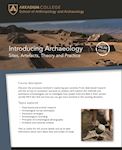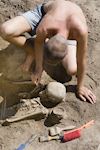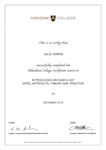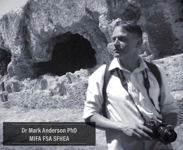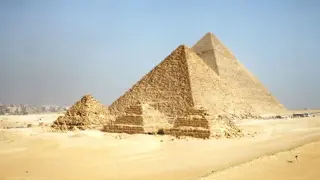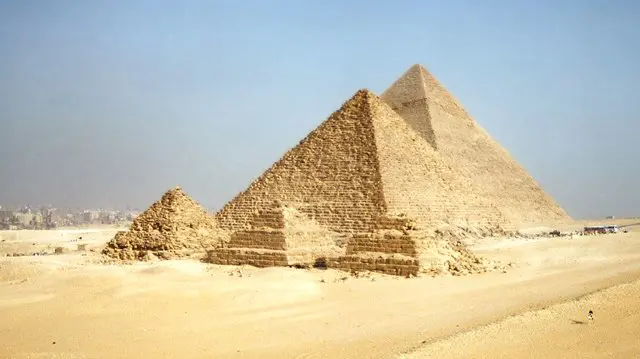
Introducing Archaeology - Level 3 Certificate
Self-paced online course with multimedia materials and full tutor support.
Akkadium College Of Education Research And Development Limited
Summary
- Certificate of completion - Free
- Tutor is available to students
Add to basket or enquire
Overview
Introducing Archaeology offers a broad introduction to the processes of investigating past societies.
We'll examine a wide range of international case studies to discover the methods and techniques archaeologists use, and learn what they can tell us about how people lived and died in their ancient worlds.
We'll gain fascinating insights into all of the key stages of an archaeological project: from the initial phases of research in libraries and archives, through processes of site survey and excavation, to the post-excavation analysis of artefacts and materials.
Finally, we'll adopt a global perspective to look at current threats to important archaeological sites around the world, and explore how you could get involved and make a meaningful contribution to this exciting discipline.
Certificates
Certificate of completion
Digital certificate - Included
Course media
Description
Intended learning outcomes
Upon completion of the course, participants should be able to:
- Discuss the development of archaeology as a discipline, including major theories and approaches;
- Evaluate the significance of key sites and archaeological case studies from a range of countries and periods;
- Describe some of the key methods and techniques used in modern archaeological fieldwork, survey and artefact analysis;
- Identify major current issues in the protection of important heritage sites;
- Develop a personal action plan for becoming more involved in archaeology after the course.
Syllabus
In this course we explore the following topics:
- What is archaeology? Exploring definitions;
- Desk-based and archival research;
- Field survey;
- Excavation: strategies and techniques;
- Archaeological recording;
- Principles of archaeological photography;
- Artefacts: processing and analysis;
- Conservation issues: protecting world heritage;
- Want to be an archaeologist? Getting involved.
Tutor
Dr. Mark Anderson is the course instructor. He is a Senior Teaching Fellow at Imperial College London, and a tutor in archaeology and anthropology at the Oxford University Department for Continuing Education.
Mark is a Fellow of the Royal Anthropological Institute, a Member of the Chartered Institute for Archaeologists, a Fellow of the Society of Antiquaries of London and a Senior Fellow of the Higher Education Academy. He is the author of Marothodi: The Historical Archaeology of an African Capital.
Who is this course for?
This course is ideal for anyone who would like to learn more about the processes involved in archaeological investigation. You may have a general interest in finding out what actually goes on in those muddy trenches, or maybe you want to deepen your understanding of scientific archaeological methods. Perhaps you're thinking about a new career and you want to learn more about what professional archaeologists do.
If you are new to studying online you'll get plenty of support, including free access to a bonus course – Preparing for Online Learning – to help you get the most from your investment. Plus, our tutors and learning support team are always here to help you succeed.
Requirements
The course is designed as an introduction to archaeological principles and practice, so no prior knowledge or experience is required. If you do have some experience, there will be opportunities for you to build upon this by engaging more deeply with specific topics of interest.
Career path
This course provides a foundation that could lead to a range of cultural resource management (CRM) careers, including field archaeologist (leading to archaeological supervisor and project manager), heritage conservationist, finds specialist, materials analyst, archivist or surveyor. There are many related careers that value the transferable skills developed through archaeological practice.
Reviews
Currently there are no reviews for this course. Be the first to leave a review.
Legal information
This course is advertised on reed.co.uk by the Course Provider, whose terms and conditions apply. Purchases are made directly from the Course Provider, and as such, content and materials are supplied by the Course Provider directly. Reed is acting as agent and not reseller in relation to this course. Reed's only responsibility is to facilitate your payment for the course. It is your responsibility to review and agree to the Course Provider's terms and conditions and satisfy yourself as to the suitability of the course you intend to purchase. Reed will not have any responsibility for the content of the course and/or associated materials.
